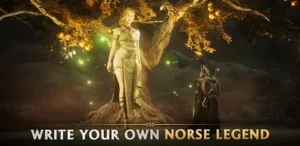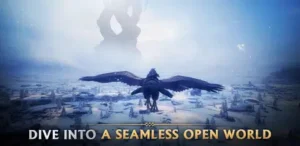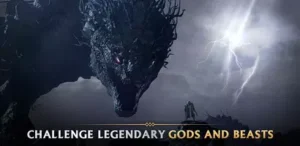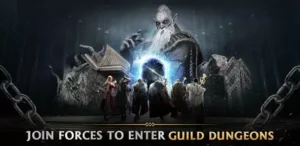Ancient stories are seeing a resurgence in an era where computer games, streaming services, and blockbuster blockbusters rule the entertainment landscape.
This essay examines how Odin and Odin-Valhalla-Rising have evolved beyond their legendary origins to become symbols of modern narratives that evoke ageless ideas of strength, selflessness, and fate.
This essay examines how Odin and Valhalla have evolved beyond their legendary origins to become symbols of modern narratives that evoke ageless ideas of strength, selflessness, and fate.
Odin-Valhalla-Rising The enigmatic Allfather
The one-eyed deity of poetry, combat, and knowledge, Odin, is a paradoxical character.
In Norse mythology, he is a monarch who is prepared to control fate in addition to being an unrelenting learner.
His defining characteristics—a spear called Gungnir, the ravens Huginn and Muninn (Thought and Memory), and the eye he sacrificed at Mímir’s Well—create an image of a god who is fixated on escaping death.
The story of Odin is rife with contradictions. In addition to ruling Odin-Valhalla-Rising as a warrior-king, he is a shamanic nomad who is ravenous for the runes’ mysteries.
He is a fascinating character for contemporary adaptations because of his intricacy.
Valhalla: The Hall of the Slain
Players traverse this dichotomy in Assassin’s Creed Odin-Valhalla-Rising, creating colonies while longing for Valhalla’s grandeur, reflecting contemporary conflicts between personal legacy and community.
From Mead Halls to Mainstream Media
The introduction of Norse mythology into popular culture started in the 19th century with Richard Wagner’s Der Ring des Nibelungen, but it has since taken off in the 21st century. Important modifications consist of
- Marvel Cinematic Universe: Despite being sanitised, Anthony Hopkins’ Odin introduced Asgard to audiences across the world.
- Vikings (2013–2020): The show presents Odin as a wanderer with omens, fusing myth and historical drama.
- The gritty depiction of Odin-Valhalla-Rising in God of War (2018–2022) portrays him as a despotic manipulator, mirroring the modern mistrust of authority.
- Literature: Writers such as Rick Riordan (Magnus Chase) and Joanne Harris (The Gospel of Loki) retell myths for contemporary audiences.
Despite frequently deviating from the Poetic Edda and Prose Edda, these writings maintain their basic ideas.
Controversies: Cultural Appreciation vs. Appropriation
Discussions about the usage of Norse symbols are becoming more heated as they become more commonplace. The image of radical groups is further complicated by their adoption of runes
To ensure authenticity, shows like The Northman (2022) work with linguists and historians. In the meantime, games that combine enjoyment with instruction, such as Assassin’s Creed Valhalla, include educational features.
Why Now? The Allure of Norse Myths
Odin and Valhalla’s comeback reflects larger societal trends:
Search for Meaning: Myths provide existential frameworks in a secular era. Humanity’s quest for meaning is reflected in Odin’s quest for insight.
Escapismo y empoderamiento: After a pandemic, stories of bravery and resiliency offer solace. Similar to Viking adventures, games such as Valheim allow players to conquer chaos.
Complex Morality: Odin’s ethically dubious character fits nicely with the tendency of antiheroes predominating in contemporary media.
In addition, the Viking Age represents travel and adventure, which is consistent with the current interest in frontiers—space, technology, and identity.
The Future of Norse Narratives
Norse tales may take on darker, more urgent meanings as political unrest and climatic disaster revive memories of Ragnarök.
Furthermore, the development of virtual reality has the potential to transport viewers to Asgard’s worlds, providing them with intense mythological experiences.
However, the fundamental appeal endures despite technological advancements: In an age-old legend, Odin and Valhalla represent humanity’s never-ending battle against chaos.
Conclusion
“Cattle die, kinsmen die; the self must also die,” the Hávamál said. But for the one who can attain it, glory never fades. The story of the Allfather keeps shining a light on our search for purpose.






